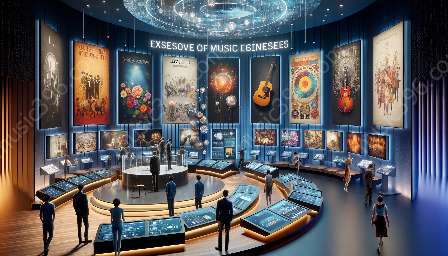Music has long served as a profound form of self-expression, carrying deep implications within the realms of philosophy of music and musicology. Delving into this nuanced topic allows us to understand the multifaceted role of music in shaping personal identity, conveying emotions, and fostering cultural connections. It is within this exploration that we uncover the intricate interplay between music, self-expression, and societal dynamics.
Music and Personal Identity
At its core, music is a powerful means for individuals to express their innermost thoughts, beliefs, and experiences. In the realm of philosophy of music, this aspect sparks inquiries into the nature of musical expression and its relationship to the self. Through music, individuals can articulate their unique perspectives, aspirations, and struggles, thereby shaping and reaffirming their sense of self. Whether through composing, performing, or simply listening, music offers a space for self-reflection and introspection, allowing individuals to externalize their inner world.
Emotional Communication and Music
Music's capacity for emotional communication forms a key facet of its implications as a form of self-expression. In musicology, scholars investigate the ways in which different musical elements such as melody, rhythm, and harmony evoke and convey a wide spectrum of emotions. This exploration underscores how music serves as a universal language for the expression and interpretation of feelings, transcending linguistic barriers to connect individuals on a profound emotional level. Through music, individuals can articulate complex emotions, find solace in shared experiences, and forge empathic connections with others.
Cultural Significance and Artistic Creativity
Furthermore, music carries profound implications within the realm of culture. It serves as a rich tapestry through which societal narratives, traditions, and values are expressed and passed down through generations. In the philosophy of music, the cultural dimensions of music prompt contemplation on the intersections of individual and collective identity. Moreover, musicology examines how diverse musical traditions and genres reflect and contribute to the artistic creativity of different cultures, fostering a sense of belonging and heritage.
Integration of Philosophy of Music and Musicology
The nuanced exploration of music as a form of self-expression integrates the perspectives of both philosophy of music and musicology. Philosophy of music prompts us to ponder the metaphysical and existential dimensions of musical self-expression, considering questions of authenticity, originality, and the nature of musical meaning. On the other hand, musicology provides a comprehensive lens through which to analyze the historical, sociocultural, and technical aspects of musical self-expression, offering valuable insights into the diverse manifestations and interpretations of music across time and space.
Conclusion
In conclusion, the implications of music as a form of self-expression extend far and wide within the realms of philosophy of music and musicology. Music serves as a profound conduit for the articulation of personal identity, the communication of emotions, and the preservation of cultural heritage. As we continue to explore the intricate connections between music and self-expression, we gain a deeper understanding of the enduring significance of music in shaping individual lives and enriching the human experience.



















